U.S. Economic Indicators
Throughout this site there are many discussions of economic indicators. This post is the latest in a series of posts indicating facets of U.S. economic weakness or a notably low growth rate.
The level and trend of economic growth is especially notable at this time. As seen in various measures and near-term projections, the U.S. economy had undergone an outsized level of economic contraction in 2020. However, most people believe (and virtually all prominent economic forecasts indicate) that this historic level of contraction will prove ephemeral in nature; i.e. an economic expansion will continue.
As seen in the July 2021 Wall Street Journal Economic Forecast Survey the consensus (average estimate) among various economists is for 6.89% GDP growth in 2021, 3.24% GDP growth in 2022, and 2.30% GDP growth in 2023.
Charts Indicating U.S. Economic Weakness
Below are a small sampling of charts that depict weak growth or contraction, and a brief comment for each:
Personal Income (PI)
Personal Income has recently been volatile and its growth rate may be waning. Below is the Personal Income chart with last value of $20,667.7 Billion through July, last updated August 27, 2021:
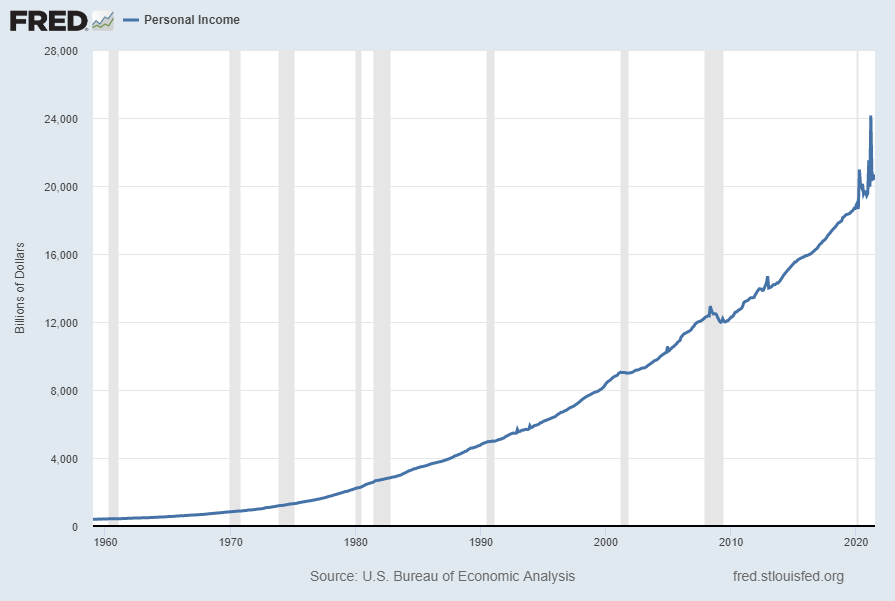
Shown below is this same measure from a “Percent Change” basis, with current value of 1.1%:
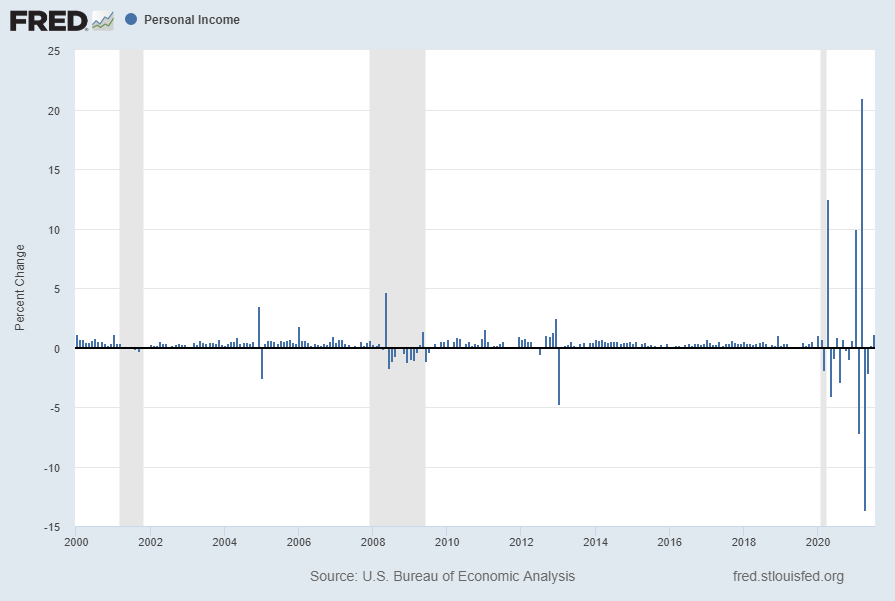
Shown below is this same measure from a “Percent Change From Year Ago” basis, with current value of 2.7%:
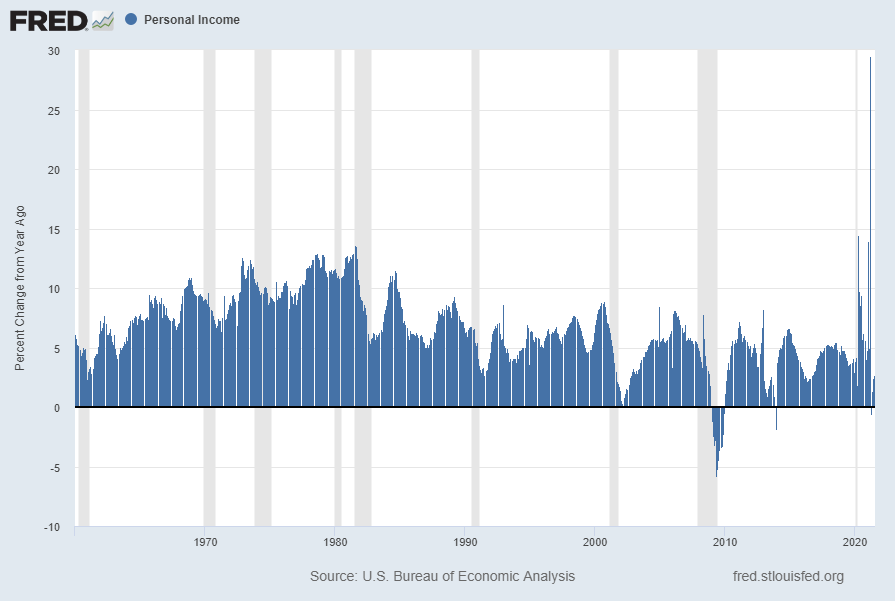
source: U.S. Bureau of Economic Analysis, Personal Income [PI], retrieved from FRED, Federal Reserve Bank of St. Louis; accessed September 10, 2021: https://fred.stlouisfed.org/series/PI
__
Personal Consumption Expenditures (PCE)
“Personal Consumption Expenditures” (PCE) has advanced strongly after substantial 2020 weakness. Shown below is this measure with last value of $15,832.3 through July, last updated August 27, 2021:
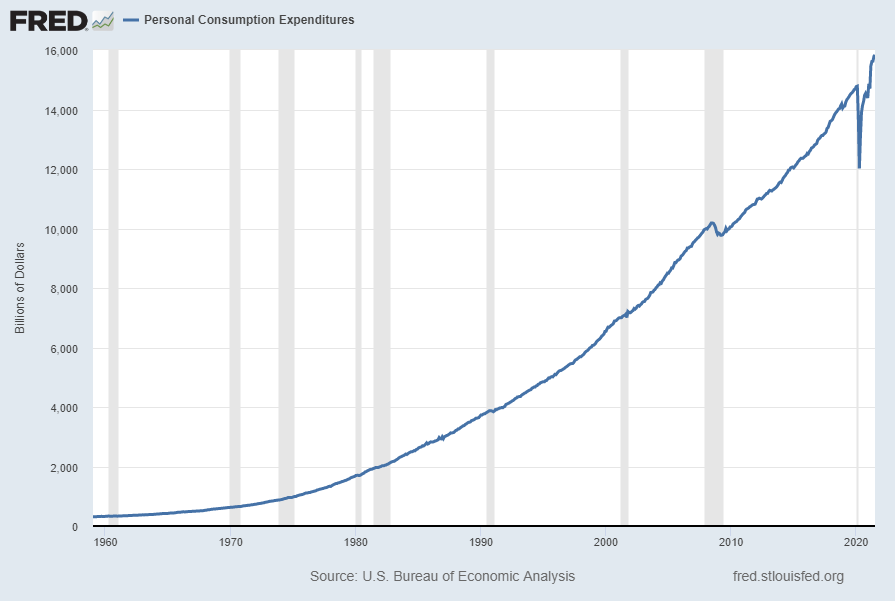
However, when viewed from a “Percent Change” perspective the growth appears to be volatile. Below is this measure displayed on a “Percent Change” (from prior month) basis with last value of .3%:
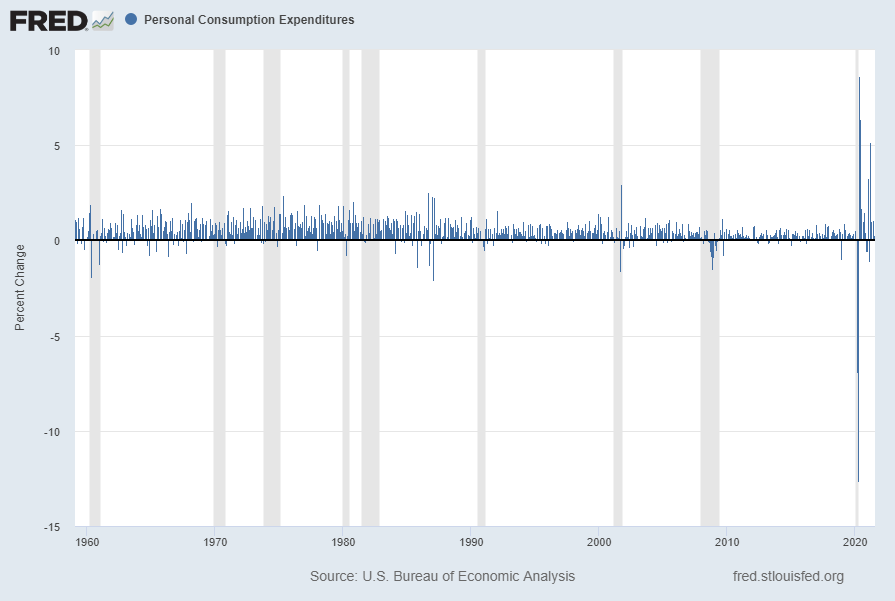
Below is this measure displayed on a “Percent Change From Year Ago” basis with value 12.1%:
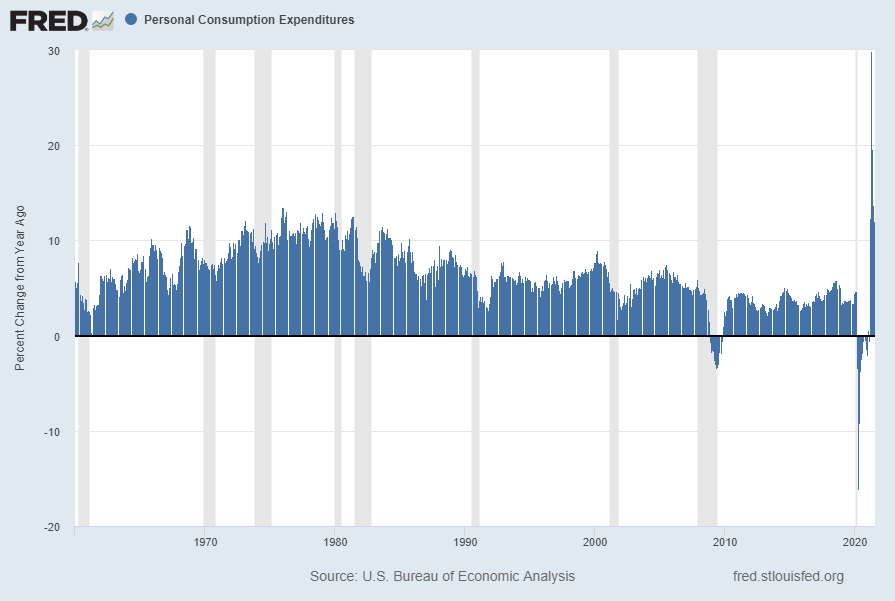
source: U.S. Bureau of Economic Analysis, Personal Consumption Expenditures [PCE], retrieved from FRED, Federal Reserve Bank of St. Louis; accessed September 12, 2021: https://fred.stlouisfed.org/series/PCE
__
Advance Retail Sales: Retail Trade and Food Services (RSAFS)
Advance Retail Sales: Retail Trade and Food Services (RSAFS), when viewed from a long-term perspective, has also recently been volatile. While the trend as viewed from a “Percent Change From Year Ago” basis remains – as one might expect – robust, when viewed from a “Percent Change” basis the growth trend appears less robust.
Shown below is this measure with last value of $617,719 Million through July, last updated August 17, 2021:
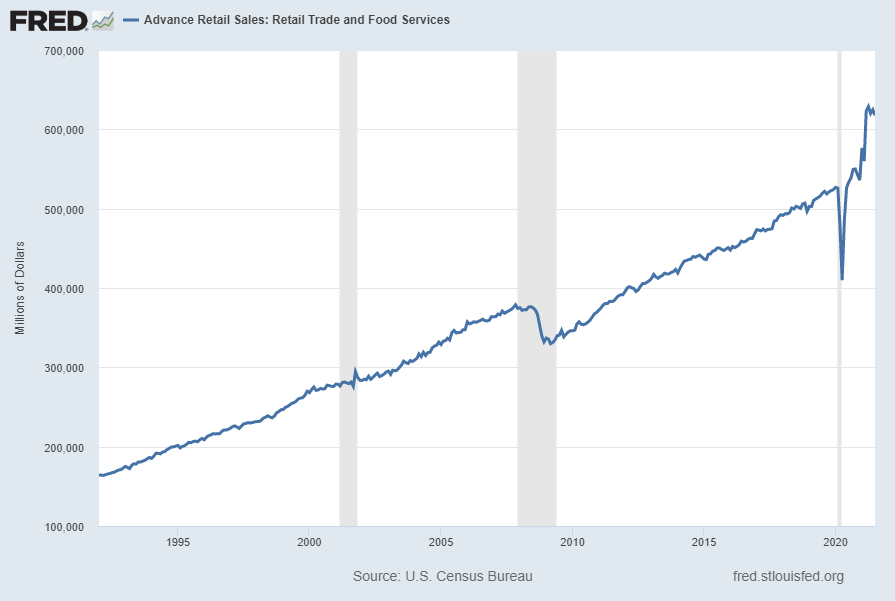
Displayed below is this same RSAFS measure on a “Percent Change” (from prior month) basis with value -1.1%, last updated August 17, 2021:

Below is this measure displayed on a “Percent Change From Year Ago” basis with value 15.8%, last updated August 17, 2021:

source: U.S. Census Bureau, Advance Retail Sales: Retail and Food Services, Total [RSAFS], retrieved from FRED, Federal Reserve Bank of St. Louis; accessed September 10, 2021: https://fred.stlouisfed.org/series/RSAFS
__
Auto Sales (ALTSALES)
Auto sales have an extensive impact on economic activity. Recent auto sales appear to be (highly) impacted by vehicle availability. Shortages, most notably in semiconductors, has curtailed vehicle supply. Auto sales, according to the current reading (through August 2021, updated on September 3, 2021) is 13.047 million vehicles SAAR. As shown below, this is a substantial decline when viewed against recent sales trends:
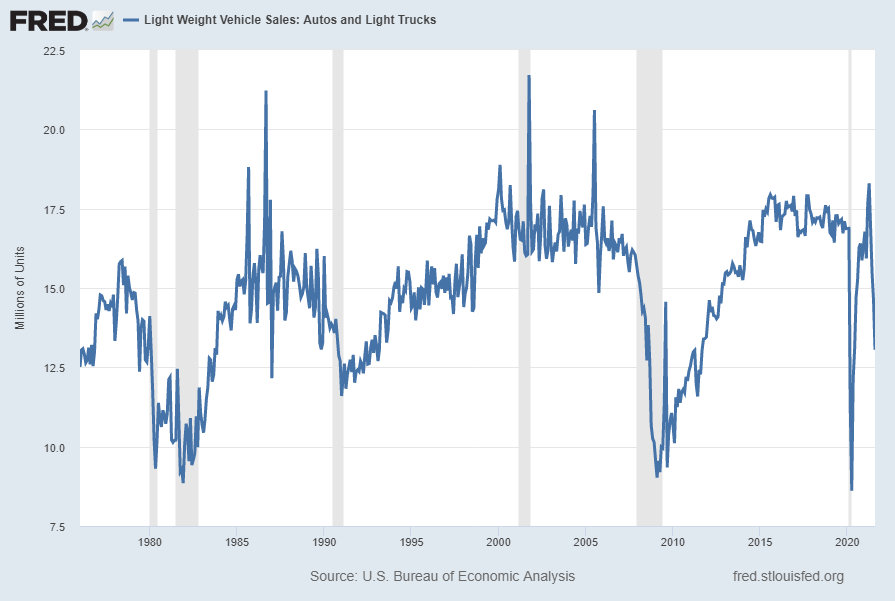
As seen below, this same measure on a “Percent Change From Year Ago” basis, with value -14.4%:
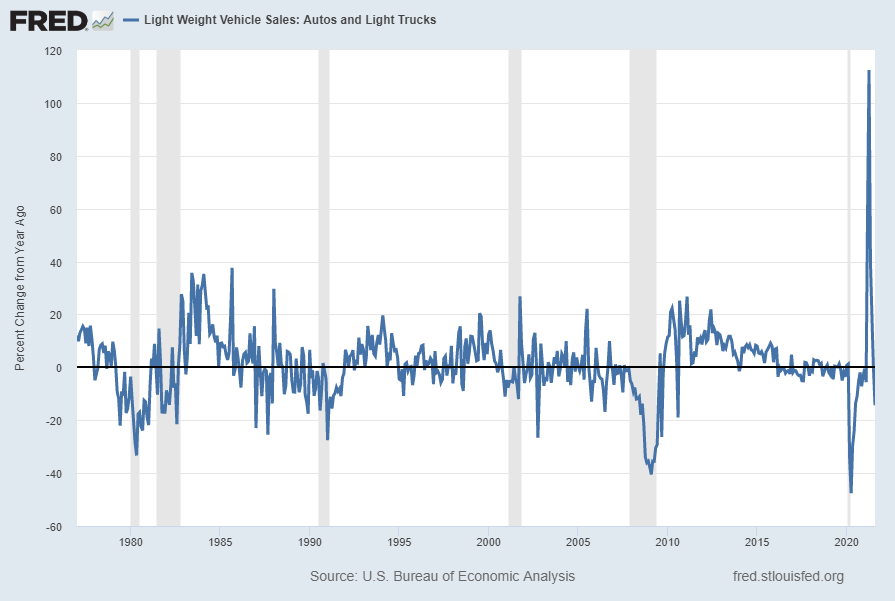
__
Other Indicators
As mentioned previously, many other indicators discussed on this site indicate economic weakness or economic contraction, if not outright (gravely) problematical economic conditions.
_____
The Special Note summarizes my overall thoughts about our economic situation
SPX at 4458.58 as this post is written
No comments:
Post a Comment